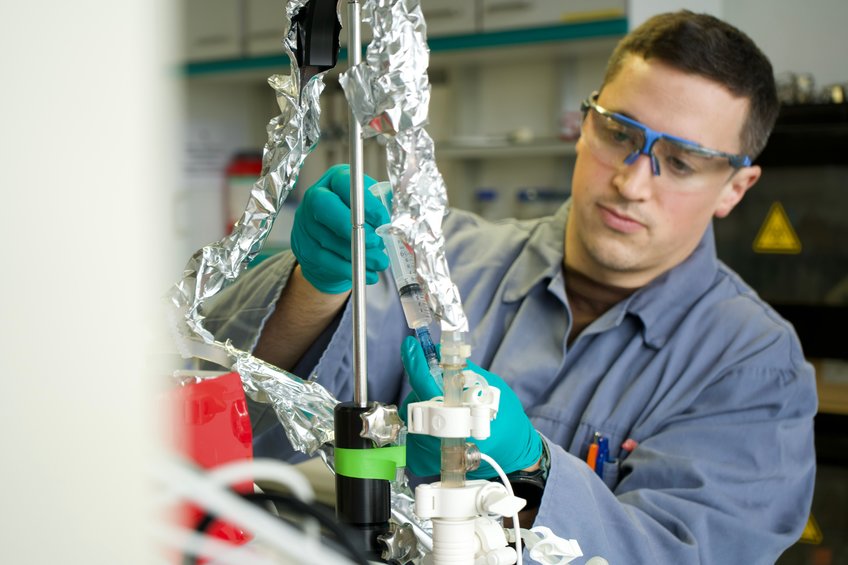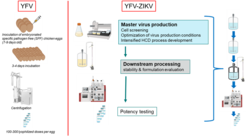
Flavivirus production in animal cell culture
Motivation
The 17D vaccine is often considered a “legacy” vaccine, i.e., the vaccine was developed in the 1930s before modern techniques were introduced for developing a vaccine. This does cause some complications in the 21st century. Current yellow fever vaccine manufacturing processes rely on embryonated chicken eggs, a slow and elaborate method which cannot be simply ramped up as vaccine demands promptly increase, leading to occasional shortages. Furthermore, adherent Vero cells were seen as a possible cell culture-based substrate. Previously, we have shown clear process improvement, by using suspension cells, such as BHK21 or EB66.
Our collaboration partner KU Leuven developed a novel vaccine platform technology, using the YF17D as a live viral vector to engineer novel vaccines against unmet medical needs. This plug-and-play technology has been validated using a series of target and model antigens, such as rabies, Zika, Ebola and Lassa.

Aim
Based on our previous knowledge for YFV production in suspension cells, we want to develop a novel straightforward manufacturing approach (readied for industrial scale) for these YF17D-based vaccines which is reliable and outcompetes the benchmark set by prior technology. Our approach should ideally be transferable to a wide range of different YF17D-based constructs, i.e. by process intensification and control for operation of high-cell-density perfusion cultivations with optimal infection conditions.
References
Kum, D.B., Mishra, N., Boudewijns, R. et al. A yellow fever–Zika chimeric virus vaccine candidate protects against Zika infection and congenital malformations in mice. npj Vaccines 3, 56 (2018).
Sanchez-Felipe, L., Vercruysse, T., Sharma, S. et al. A single-dose live-attenuated YF17D-vectored SARS-CoV-2 vaccine candidate. Nature 590, 320–325 (2021).
